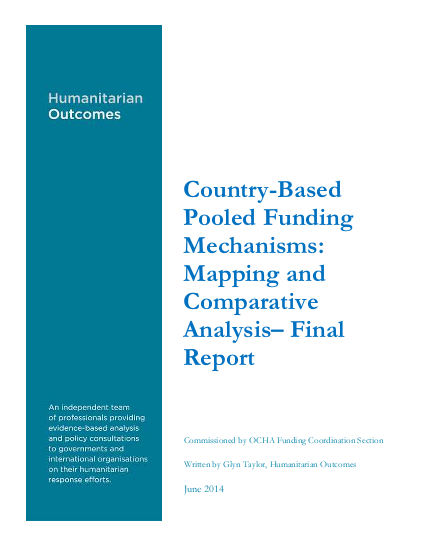
This study contributes to a broader effort to achieve clarity of purpose for Country Based Pooled Funds (CBPFs). These Funds, at the disposal of UN Humanitarian Coordinators (HC)s, tend to operate in fragile and conflict-affected states (FCAS), settings that absorb a high proportion of global humanitarian assistance. In FCAS, the humanitarian system plays a wide variety of roles, ranging from strictly life-saving response to disaster preparedness and resilience building. Whether or not the system as a whole should play a broad or narrow role remains a constant source of debate. Critical to analysis in the context of FCAS is the relationship between humanitarian and other forms of assistance: development (in the broad sense); recovery; disaster preparedness; stabilization; and the delivery of basic services in the absence of state systems. To better define the purpose of CBPFs, the report explores the interrelated issues of alignment and breadth of response: should these funds, in support of the humanitarian system, be focused on life-saving assistance, or should they should take a broader approach to humanitarian response, across the breadth of OCHA’s mandate and including components like early recovery, disaster preparedness and resilience building?